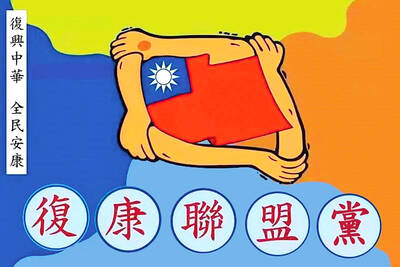Iran has cleared up questions from the UN nuclear agency about its experiments with plutonium, a potential atom bomb material, a UN-Iranian working document released by Iran said on Monday.
The plutonium issue is one of several over which the UN Security Council has imposed sanctions to get Iran to cooperate with the watchdog International Atomic Energy Agency (IAEA), which is investigating US charges that Iran is covertly developing nuclear weapons.
Iran's mission to the IAEA released in Vienna the five-page text of a timetable for cooperation with the agency that was agreed on in closed-door talks with IAEA officials last week in Tehran.
The IAEA is to file a report on Iran this week, ahead of a meeting of its 35-nation board of governors next month, which will be crucial in determining the level of Iranian cooperation.
The US has said that Iran is playing at cooperating with the IAEA in order to avoid further UN sanctions, and that it is still defying the UN demand for it to stop making enriched uranium.
Plutonium and enriched uranium are both parts of civilian nuclear programs but can also be used to make atom bombs.
The timetable said Iran has already agreed to five new IAEA inspectors and is opening the door to resolving concern over documents that allegedly point to it having a secret military project for developing the bomb.
Other issues include Iran's work on sophisticated centrifuges to enrich uranium and its building of a heavy-water reactor to make plutonium.
Iran also said it would answer questions about an alleged "Green Salt project," which US intelligence said involves a secret site to prepare uranium and also alleged research on putting nuclear warheads on missiles.
But Tehran said in the text that these were "politically motivated and baseless allegations."
The goal, said a diplomat, is to answer all questions by December.
A UN official said the document reflected both the IAEA's and Iran's views and that the question of whether Iran had experimented with plutonium more recently than it had stated and that there was plutonium unaccounted for had been resolved.
The official and diplomats spoke on condition of anonymity owing to the sensitive nature of the issue.
The timetable released by Iran's mission to the Vienna-based IAEA said: "On 20 August 2007, the agency stated that earlier statements made by Iran [on the issue of plutonium] are consistent with the agency's findings and thus this matter is resolved."
It said the IAEA would be communicating this "officially ... to Iran through a letter."
The UN Security Council has imposed two rounds of sanctions on Iran to get it to stop uranium enrichment and plutonium reprocessing and to answer questions from the IAEA.

AIR DEFENSE: The Norwegian missile system has proved highly effective in Ukraine in its war against Russia, and the US has recommended it for Taiwan, an expert said The Norwegian Advanced Surface-to-Air Missile Systems (NASAMS) Taiwan ordered from the US would be installed in strategically important positions in Taipei and New Taipei City to guard the region, the Ministry of National Defense said in statement yesterday. The air defense system would be deployed in Taipei’s Songshan District (松山) and New Taipei City’s Tamsui District (淡水), the ministry said, adding that the systems could be delivered as soon as the end of this year. The US Defense Security Cooperation Agency has previously said that three NASAMS would be sold to Taiwan. The weapons are part of the 17th US arms sale to

SERIOUS ALLEGATIONS: The suspects formed spy networks and paramilitary groups to kill government officials during a possible Chinese invasion, prosecutors said Prosecutors have indicted seven retired military officers, members of the Rehabilitation Alliance Party, for allegedly obtaining funds from China, and forming paramilitary groups and assassination squads in Taiwan to collaborate with Chinese troops in a possible war. The suspects contravened the National Security Act (國家安全法) by taking photos and drawing maps of key radar stations, missile installations and the American Institute in Taiwan’s headquarters in Taipei, prosecutors said. They allegedly prepared to collaborate with China during a possible invasion of Taiwan, prosecutors said. Retired military officer Chu Hung-i (屈宏義), 62, a Republic of China Army Academy graduate, went to China

INSURRECTION: The NSB said it found evidence the CCP was seeking snipers in Taiwan to target members of the military and foreign organizations in the event of an invasion The number of Chinese spies prosecuted in Taiwan has grown threefold over a four-year period, the National Security Bureau (NSB) said in a report released yesterday. In 2021 and 2022, 16 and 10 spies were prosecuted respectively, but that number grew to 64 last year, it said, adding that the Chinese Communist Party (CCP) was working with gangs in Taiwan to develop a network of armed spies. Spies in Taiwan have on behalf of the CCP used a variety of channels and methods to infiltrate all sectors of the country, and recruited Taiwanese to cooperate in developing organizations and obtaining sensitive information

BREAKTHROUGH: The US is making chips on par in yield and quality with Taiwan, despite people saying that it could not happen, the official said Taiwan Semiconductor Manufacturing Co (TSMC, 台積電) has begun producing advanced 4-nanometer (nm) chips for US customers in Arizona, US Secretary of Commerce Gina Raimondo said, a milestone in the semiconductor efforts of the administration of US President Joe Biden. In November last year, the commerce department finalized a US$6.6 billion grant to TSMC’s US unit for semiconductor production in Phoenix, Arizona. “For the first time ever in our country’s history, we are making leading edge 4-nanometer chips on American soil, American workers — on par in yield and quality with Taiwan,” Raimondo said, adding that production had begun in recent